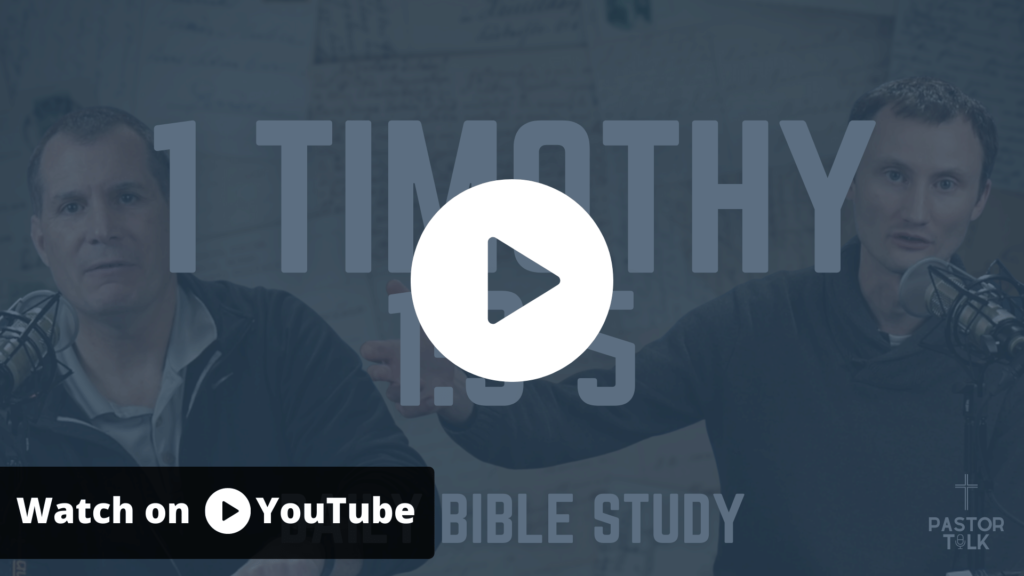
/
RSS Feed
Today Paul makes it abundantly clear why he is writing to Timothy, to urge him to stand strong in his opposition to the Christian false teachers in Ephesus. With just a few short words, Paul both undercuts the religious temptation to create a “secret decoder ring” and also reminds Timothy that all true Christian teaching must flow out from a heart of sincere love.
Be sure to share this with anyone who you think might be interested in going along on this journey together through 1 Timothy together.

Pastor Talk Quick Links:
- Learn more about the Pastor Talk series and view our previous studies at https://pastortalk.co
- Subscribe to get the Pastor Talk episodes via podcast, email and much more! https://pastortalk.co#subscribe
- Questions or ideas? Connect with us! https://pastortalk.co#connect
- Interested in joining us for worship on Sunday at 8:50am? Join us at https://fpcspiritlake.org/stream
